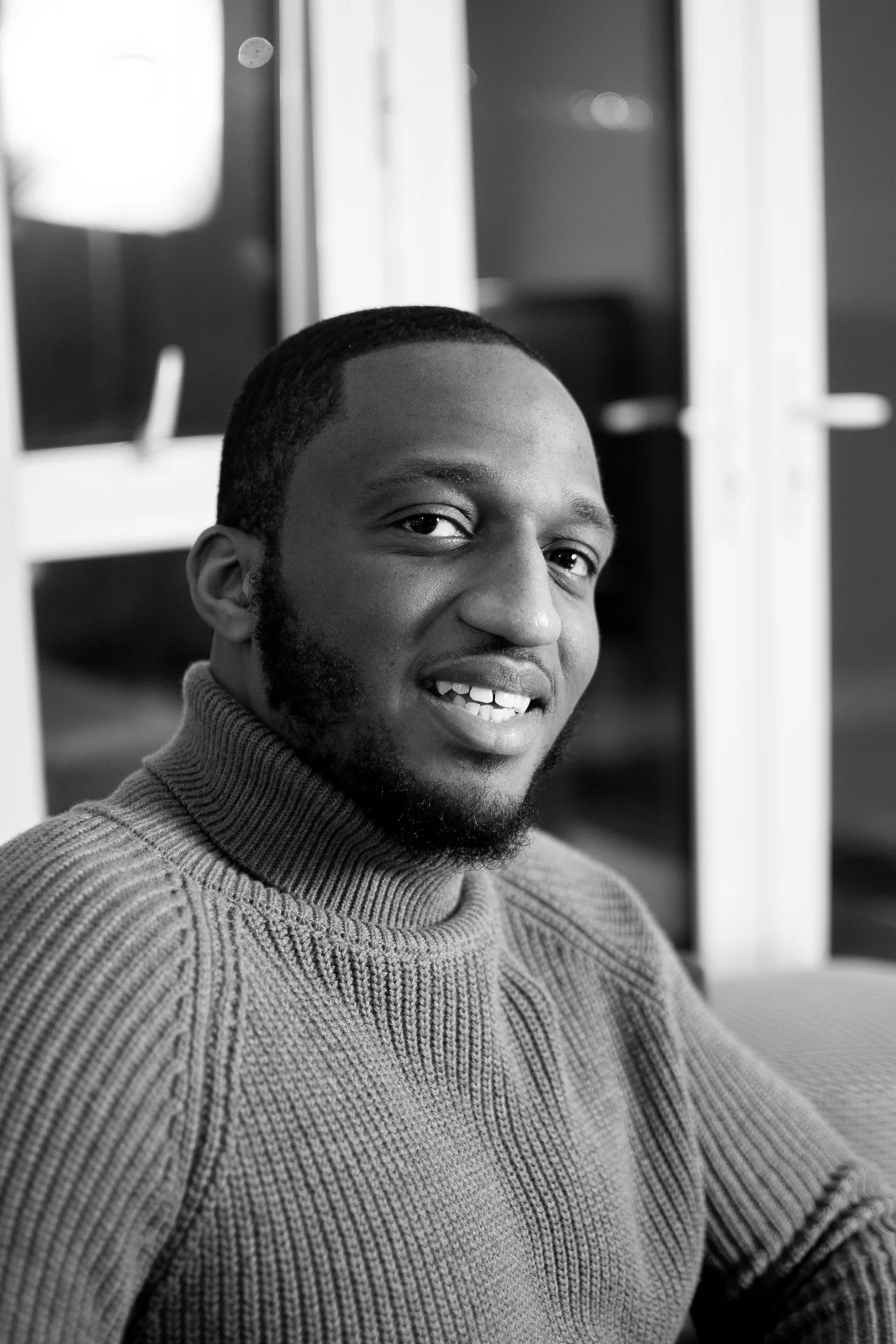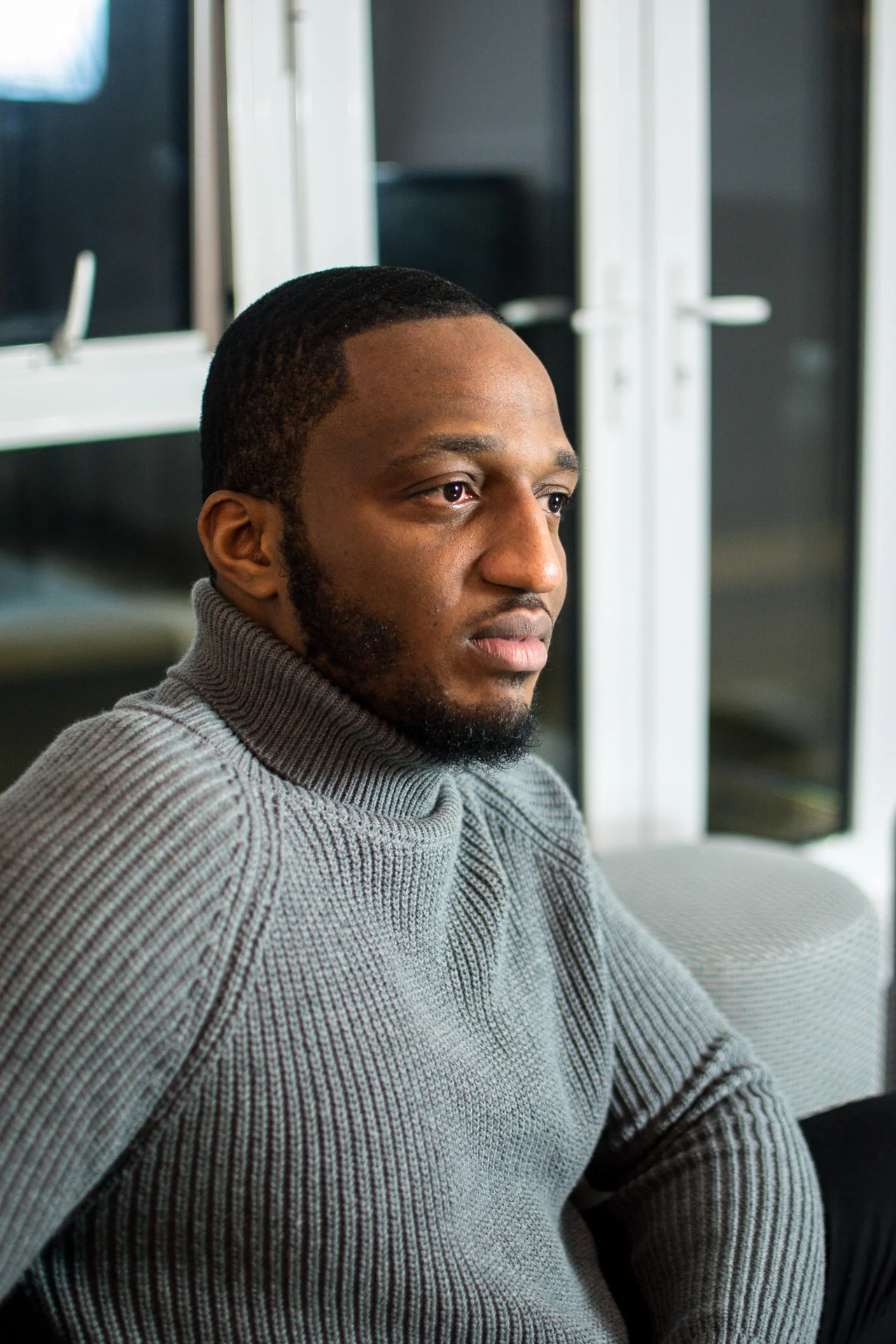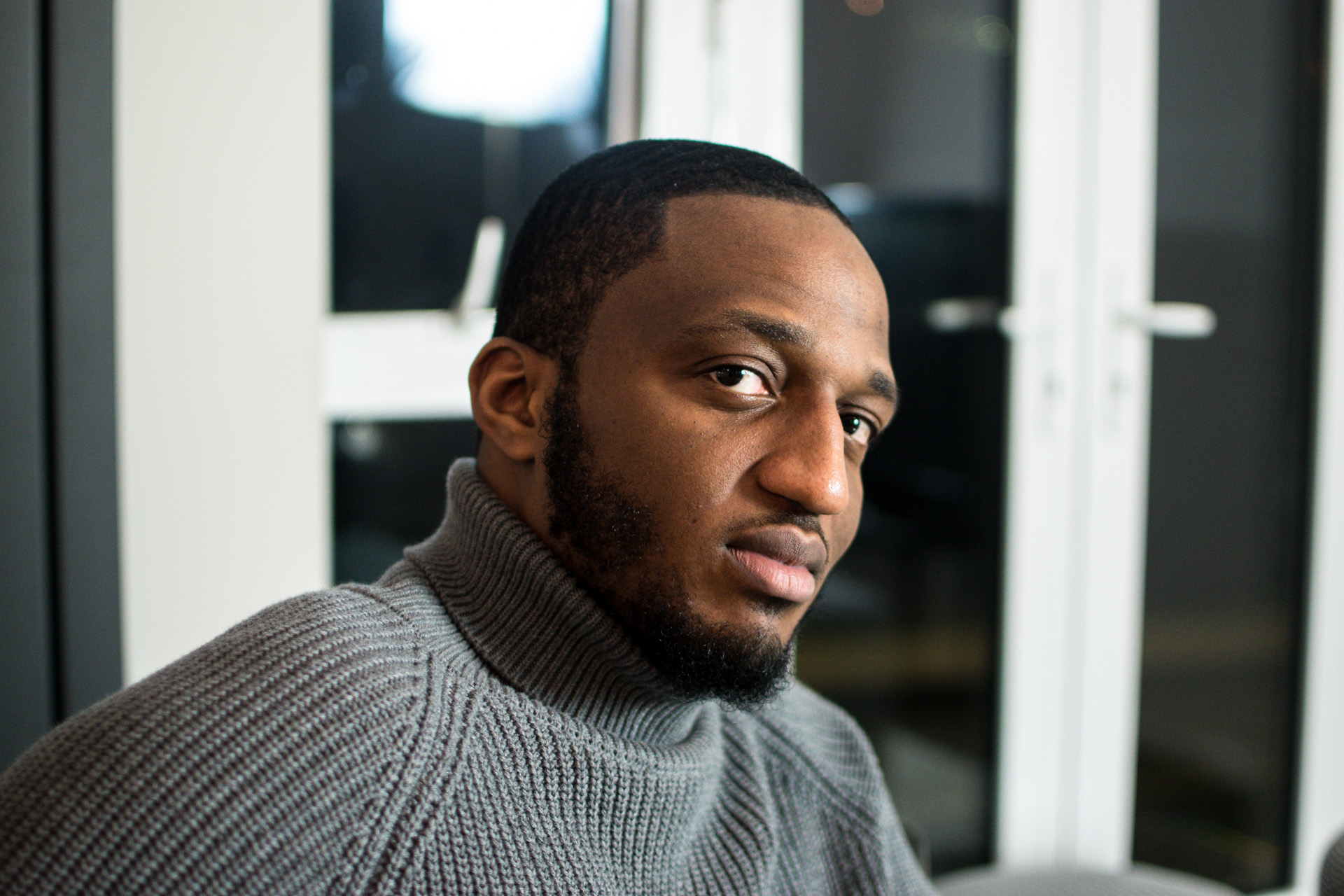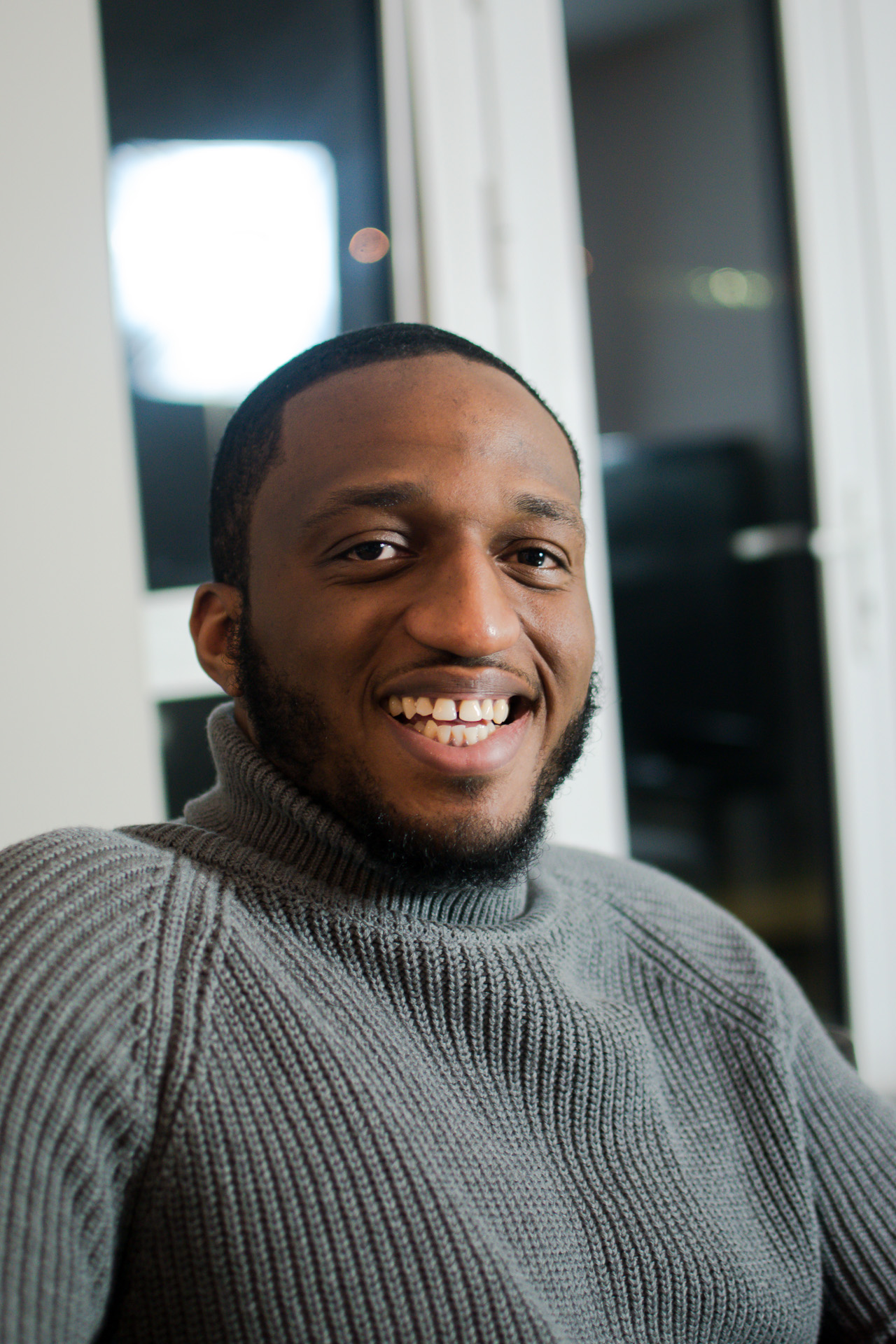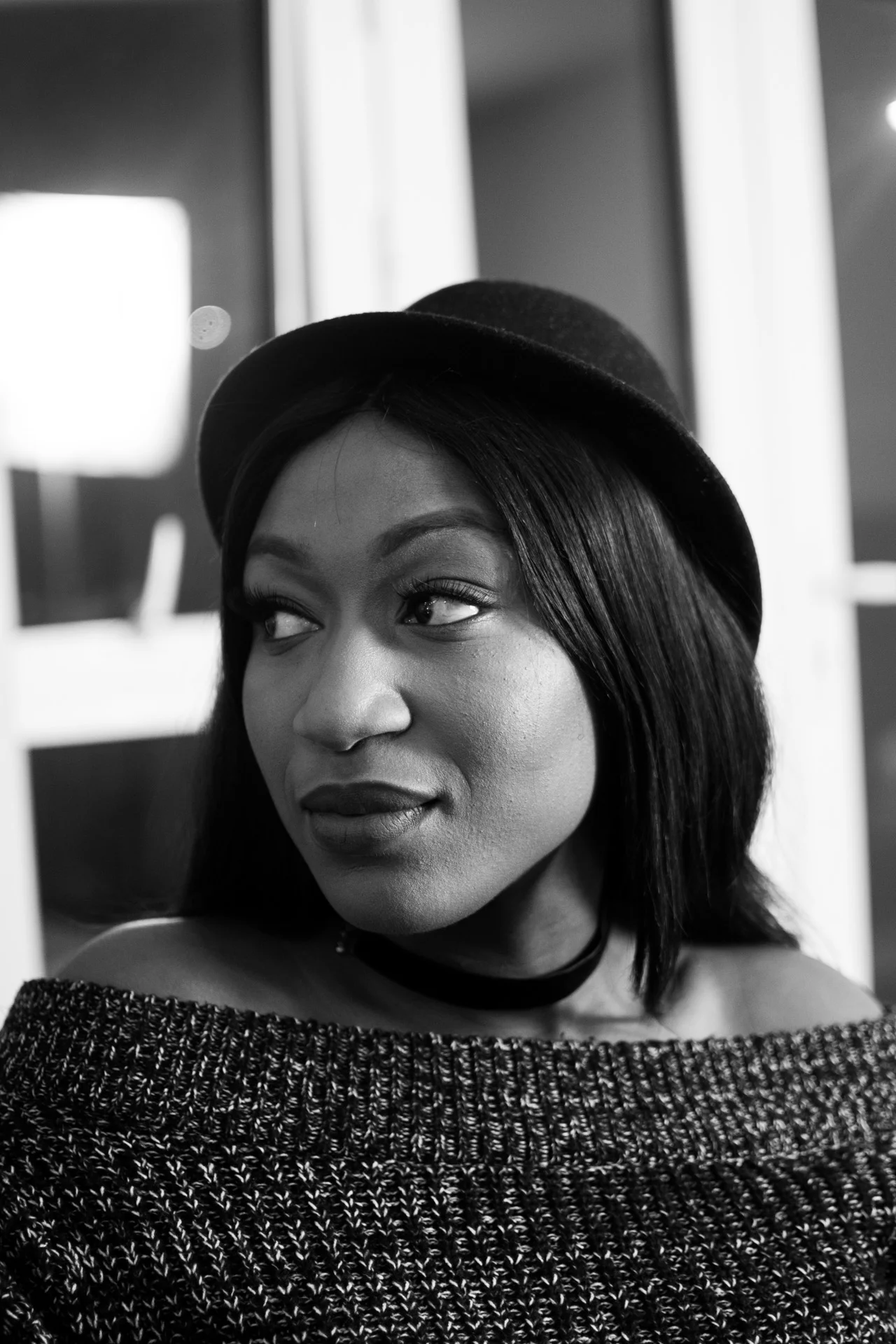Nick
Nick, 27
Nigerian ethnicity: Igbo
City/County grew up in: Lagos, London
City/County of residence: Kent
*audio below
Describe your heritage
I would describe my heritage as Nigerian. In terms of referring to myself as Black British - only by virtue of me being born here. So my mother was born in [Nigeria], my father was born here and my grand-father and great-grandfather were born in this country as well. So I appreciate being in this country, but I feel I have a very strong connection to my Nigerian heritage given the fact that I also went to school there for 5 years.
What to you, makes you Black British Nigerian? How do you define it?
I define myself as being Black British Nigerian by way of duality; being adaptable, being able to switch to speaking a certain way in the workplace and being British and well-postured or whatever. Then going home, understanding my Nigerian dialect which is Igbo, and I think also using that Black British term to pave the way for certain opportunities. I think when I’m filling out certain job applications, I choose Black British on the basis for them to realise I was also born here. So if they are employing me or they want to take me on, it’s that sense of “He understands the British culture” as opposed to putting other and just referring to myself as Nigerian with a pretence of that “Okay he’s Nigerian”, and maybe certain negative connotations.
What challenges do you/have you faced that relate to your identity as a Black British Nigerian?
When people refer to you as Nigerian, there’s 419, [that idea] you don’t know how to speak English properly. So similar to my sister, I spent 5 years in boarding school in Nigeria, came back over here and I guess it was that pretence that I didn’t know how to speak English properly or maybe they thought that it was my second language and the Igbo dialect is my first language, and that wasn’t the case. At the same time I also think that I’ve turned those challenges into opportunities, in the sense that when people want to know more, actually challenging and refuting the status quo. They know Nigerians as 419, but we’re actually rich in culture, we’re rich in agriculture, we’re rich in mineral resources, so I think just educating people.
What do you love about being Black British Nigerian?
I think just having a sense of respect. So people realise I have papers, I have a red passport, so they can’t just think of you as “This guy is in my country, he’s an immigrant”. And I think food and I guess knowing that when you meet other Black British Nigerians, they know the type of struggle or the sacrifices their parents have also made to come over here, give them an education, so the stories are kind of the same [and] it’s that shared narrative when you’re discussing amongst yourselves or having banter.
Do you think this country values your identity?
I don’t think this country values my identity as a Black British Nigerian, in the sense that they refer to you as African – “Are you African? Whereabouts?” and they don’t know the difference between West Africa and South Africa. So it’s just educating people slowly [on] the differences, the different dialects, that we’re not all the same, we’re different.
What does the future look like for Black British Nigerians - what are your hopes for us?
I think the future for Black British Nigerians is very bright. I think economically speaking, people realise the amount of economic activity we bring into this country. I think a recent report said we’re one of the top three spenders around Arabs, Asians and Nigerians. So I definitely think realistically in the next 10/15 years you will actually actively see in big corporate companies, the recruitment policy actively pursuing a cohort of certain Nigerians that make up [the] workforce. The same way there was a particular point in time for a few corporate companies making a particular segment of their workforce Chinese because of the economic activity going [on in] China. So I see that same trend happening a decade from now. On the basis of that I feel that is very bright for people who are born here who are Nigerian, and also people who want to come over from Nigeria for opportunities.


